MSA’s funding team has a genuine passion for helping clients transform their visions into reality.
We’ve been providing funding services for 40+ years and know how much communities can struggle with getting projects off the ground. Our team’s diverse set of knowledge allows us to pursue and bundle the right funding sources to meet each unique need — and we thrive on helping communities like yours succeed. Get to know the faces behind our funding strategies in the digital flip book below, download the flip book HERE, or keep scrolling for the same five-question Q&A in long-form format.
Q1: How do you feel you best help communities with their funding needs?
Ben: Grant administration can be a complicated business. I help communities with their funding needs during the grant administration process by streamlining some of the processes to avoid any unnecessary duplications, which saves time and expenses for the community.
Sam: My previous experience as a regional planner — providing technical and funding assistance to rural communities — has given me a unique understanding of what it takes to get projects funded and across the finish line. For communities, especially those with limited staff and capacity, the most impactful support I offer is smoothly navigating them through the complex world of funding. Whether it’s aligning project scopes with eligible funding sources, drafting compelling narratives, or coordinating with state and federal agencies, I enjoy streamlining the process so local leaders can focus on their core responsibilities.
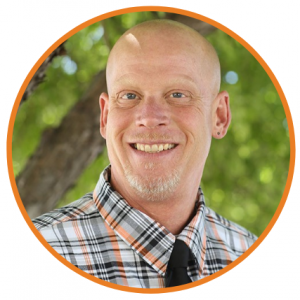
Art: My experience as an elected official and village administrator makes it a natural occurrence for me to explain and assist our clients through almost any project, be that: Capital Improvement Planning, Creating Comprehensive Plans or Outdoor Recreation Plans, Zoning, Ordinances, Funding Applications and Administration, Utility Operations, Municipal Administrative Processes, PSC Planning and Reporting, etc. I’ve been in their shoes and I’ve more than likely experienced what they are going through in their own municipalities or utilities.
Michael: Navigating the complex requirements of a grant application can be overwhelming. I take pride in doing the heavy lifting for communities, managing this process on their behalf. By handling the intricate details and paperwork, I enable communities to dedicate more time and resources to their core missions. This support not only alleviates stress but also empowers them to maximize their impact and achieve their goals more effectively. Ultimately, my role helps ensure that communities can thrive and continue their vital work without being hindered by administrative burdens.
Kianna: When we look at funding a project for a community, we try to put multiple sources of funding on that one project to get as much of the project paid for in grant dollars as we can. Being able to show a client that there is a possibility for several different funding options to make a project happen gives them hope to see that project through!
Kelli: Most communities we work with have a small staff that has a full workload. With staff being overworked, it is hard for them to stay on top of the different funding opportunities available for their projects. We can take that burden off the communities and find multiple sources of funding to apply for their projects while easing that piece of the puzzle for them.
Brittney: With many MSA communities, if they don’t have funding, they cannot afford to do the projects that are needed. With the help of our Funding team and all of MSA’s services, we can help them get their project done from start to finish.
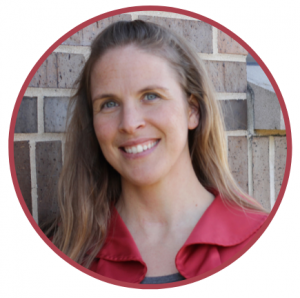
Britta: Putting together applications and doing administration for funding sources can be a lot of additional work to undertake for a community. I enjoy taking that burden off communities’ plates and getting those processes completed from start to finish.
Jennifer: I am responsible for fully administering CDBG grants from the time the grant is awarded until the project is complete and the grant is closed out. Therefore, I take on all the administrative duties and there is no time burden on the communities at all.
Kristina: With my previous work experience as a planner in small towns and rural counties, I can relate to the perspectives of the staff, especially their accountability to the community. I am mindful of the challenges that they face to be fiscally responsible, but I also want to encourage them to plan and invest in the future of their community. My approach is to look for the best outcome that is balanced, reasonable, and achievable with the support of the funding team. Having the goal in mind that there will be an overall community benefit because of successful project completion motivates me.
Lisa: Through my studies and personal experiences, I’ve grappled with the bureaucracies and red tape that come with accessing public funding. It’s clear to me that these hurdles can create significant barriers, especially for the communities that are most in need. Recognizing this drives me to do my best work, aiming to help these communities secure the funding they require. My ultimate aim is to break down these barriers, making positive change accessible to all.
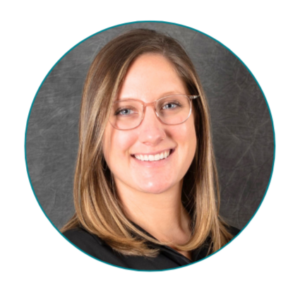
Tara: I enjoy helping the community understand the intricacies of state and federal funding programs. Smaller communities are often overwhelmed by funding requirements. I love framing the programs in a way that is easily understood, manageable, and able to achieve the community’s goals.
Diane: Being frank and honest about the competitiveness of their project for funding and finding funding that they weren’t aware of.
Q2: What first attracted you to a career in funding and/or community development?
Ben: I was attracted to a career in funding because it provided the opportunity to work with many different communities, each with its unique problems and solutions.
Sam: I’ve always been fascinated by how cities grow and change. As a kid, I loved playing SimCity, and as I got older, I was thrilled to learn that city planning was a real profession! Over time, my focus shifted to the unique needs of small towns like my own. I was drawn to community development because I wanted to help places like my hometown thrive, and funding is often the key to turning those dreams into reality.
Art: Improving the quality of life for the residents of any community has always been a passion of mine. As a prior village administrator and utility manager, I know the issues created by attempting to fund a project and see it through to its successful completion.
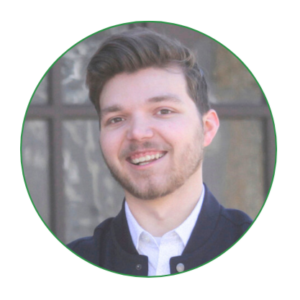
Michael: Growing up in a small village of nearly 200 people, I experienced firsthand the deep sense of community and connection that comes from living in such a close-knit environment. My hometown is much like many of the clients I serve every day. This personal background fuels my passion for improving the quality of life for everyday people. With our extensive reach, I have the privilege of enhancing the lives of those in not just one community, but many across the Midwest.
Kianna: I grew up in a small town of roughly 2,500 people, very similar to many of the clients we work with every day. What drew me in was being able to assist these small villages and cities in finding funding for projects that will help meet the growing needs of their community.
Kelli: The idea that the funding department is a group of individuals who are solution-oriented to help people/communities in need.
Brittney: I was raised in a village with a population of around 700 people, which is similar in size to many of MSA’s clients. I love to come to work and be able to help communities like the one I grew up in strive and grow.
Britta: I was hired prior to there being a funding team at MSA. I was greatly involved in helping with applications and administration prior to being asked to be a part of something new, and I was excited for that next step. I wanted to move into funding because of the client contact and helping them pursue and complete projects they otherwise couldn’t.
Jennifer: I enjoy working with people, organization, attention to detail, problem solving and finding solutions. This career combines all those facets.

Kristina: I took an urban planning class as part of my geography degree. I was fascinated by learning that you can shape the aesthetic of a city through regulation. Things like sign placement and sizes, sidewalk requirements, and road design can impact the way that you experience a place. Think of Sedona’s McDonald’s with its turquoise rather than golden arches, or the bright lighted signs of the Las Vegas Strip; each helps shape the character or sense of place. Once I learned about the world of planning, I knew that I wanted to work in community development.
Lisa: Having learned from and working with many nonprofits I understood the value of community and the development world. This interest encouraged me to further my education and get a masters in public affairs where I was exposed to public management and the importance of community development.
Tara: Watching my small, hometown struggle to provide adequate public services to its residents.
Diane: I entered local government as a career thinking that being employed by government was the only way to help communities. I now feel that I am better able to help communities by working for MSA because we have so many areas of expertise that we can tap into.
Q3: What are the biggest struggles for communities right now as it pertains to your line of work?
Ben: For many, community growth has slowed, and costs have increased. The full financial impact of the pandemic has been delayed for local governments, with the impact being felt in the 2022 budget and beyond. For many communities whose budgets are primarily composed of property taxes, there are limited options available to make up for increased costs. This leaves municipalities in the difficult position of cutting services to stay within their levy limits. Because of these reasons, it is critically important for communities to be well-informed about the different funding opportunities available.
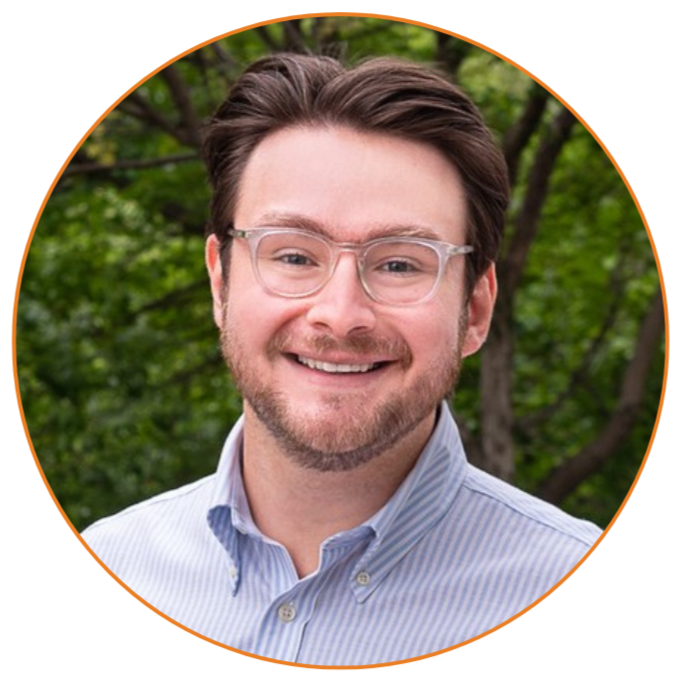
Sam: Navigating an increasingly complex funding ecosystem while juggling tight budgets, limited staff, and aging infrastructure. Communities are being asked to do more with less; they’re expected to seek out, plan, apply for, and manage competitive grants while keeping up with their day-to-day operations. MSA’s experienced funding team is here to help communities overcome these barriers and get the funding they need.
Art: Knowing the process required to move an idea or improvement concept into estimating, budgeting, and funding — and finally through construction.
Michael: As budgets become increasingly tight for most communities, funding opportunities have grown fiercely competitive. Even with a strong application, securing funding remains a significant challenge. However, with MSA’s proven track record of funding wins, our team has the expertise to prepare applications that truly stand out. Our ability to craft compelling and effective grant applications gives communities a competitive edge in securing the necessary funding to support their vital projects and initiatives.
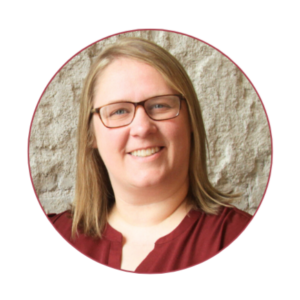
Kelli: So many communities are dealing with failing infrastructure which is a large undertaking that their budgets do not have the money for. The MSA funding team is here to help them through the process of acquiring the funds needed to keep their communities functioning.
Brittney: Communities have failing infrastructure, but not enough money to fix everything. Our MSA Funding team is here to help find funding solutions.
Britta: Right now, communities are struggling to match up all of the new, old, and revamped funding sources with what they are needing to construct or purchase.
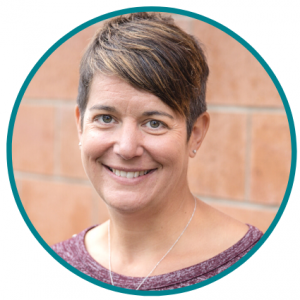
Jennifer: Communities are struggling with old infrastructure and not enough money to fix all their concerns. That’s where we come in. MSA can assist throughout the entire process and funding is the starting point.
Lisa: I think a challenge for communities having the capacity and resources to most efficiently and effectively meet their needs. The constant change of regulations and lack of accessibility means communities can get left behind or forgotten about.
Tara: Finding the perfect grant! It doesn’t exist. Funding programs will always have a caveat that doesn’t exactly align with what a community wants or needs. Flexibility and compromise are important components to developing a project proposal for a competitive grant/loan application.
Diane: Staffing levels, increasing cost of service provision, unfunded mandates, competing interests, levy limits, and static revenues. These issues are making it harder for local governments to meet the increasing expectations and demands of residents and businesses. Municipal staff wear multiple hats and must be hyper-responsive to their governing bodies, customers, and other regulatory agencies.
Q4: What drives you in the day to day?
Ben: The good and bad part about working in funding is that there are always deadlines. Once a major milestone is met, it seems like another one appears to take its place. Thankfully, deadlines, targets, and goals are strong drivers for completing projects effectively and efficiently.
Sam: Knowing that every day, I’m helping to make projects a reality that will have a positive impact on the lives of others and help transform communities.
Art: Caring for our clients and finding ways to assist them with their operations, budgeting, funding and projects. It’s a pleasure to work for some great clients, who have all become my friends. This is accomplished by having an awesome team working with me and by working for a company that takes pride in how we are viewed by our clients.
Michael: In my day-to-day work, I’m driven by the opportunity to help everyday people. I love that MSA’s mission to positively impact the lives of others aligns so closely with my own values and motivations. This alignment fuels my passion and dedication, allowing me to contribute meaningfully to the communities we serve. Knowing that our efforts make a real difference in people’s lives is incredibly rewarding and keeps me motivated to continue our important work.

Kianna: Interacting with and helping clients drives me in the day to day. All the clients we work with are public servants doing their best to better their community for generations to come; being able to be a part of that is extremely rewarding.
Kelli: It is very rewarding to work in a position that directly helps communities that need it most. The funding that our team can find for community projects vastly impacts everyone living in those communities in such a positive way.
Britta: I like helping clients match up funding with a project, and then helping them navigate through all of the paperwork, rules, and regulations from planning to construction completion.
Jennifer: I enjoy the relationships I have with our communities and it is rewarding to see their initiatives become realities due to the funding we can assist them in obtaining and administering.
Kristina: Knowing that I am a part of something bigger, that the effort that I put in helps another funding team member, another team at MSA, and the people in the communities that we work with.
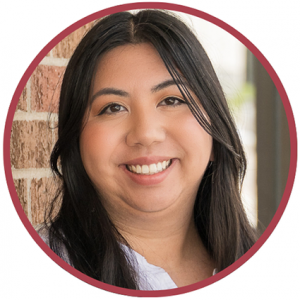
Lisa: I enjoy coming to work knowing that I can make an impact in communities that are beyond my own.
Tara: Knowing that I am a resource for communities and colleagues to come to. Funding is just a piece of the community development puzzle. I truly enjoy being a part of an effort that improves the quality of life for residents and ultimately increases community sustainability.
Diane: Variety and making a difference.
Q5: If you could tell communities one thing, right now, that would help them the most, what would it be?
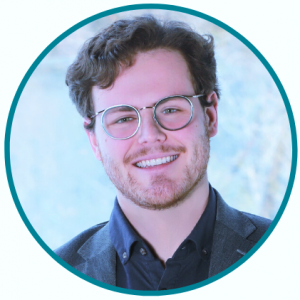
Ben: I would tell communities to consider investing in their long-range planning initiatives to obtain a better understanding of their community needs and to better formulate potential projects. When assisting communities, it is extremely helpful to have a defined vision for what the community would like to accomplish in the coming years. The products of long-term planning can be extremely helpful for identifying potential funding sources as well.
Sam: Plan, plan, plan! Even if it’s not a formal Comprehensive Plan, maintaining a written list of the projects your community hopes to pursue in 1, 5, 10, or even 20 years is one of the best ways to prepare for future funding opportunities. Check in with residents occasionally and document their feedback as well, as community engagement and prior planning are key components of nearly every funding application. A little planning now helps MSA help you, and can open big doors later!
Art: Plan!!! Even if it is just a dream that seems far from possible. Put it in writing, in a plan, a Comprehensive Plan, an Outdoor Recreation Plan, a Capital Improvement Plan … put it someplace because someday a grant opportunity or funding opportunity may come up and if you haven’t put it in a plan and created a simple budget or estimate for it, you will not get the money for it. Also, get to know your MSA consultants. Ask them to come to a meeting and introduce themselves. You may be surprised at the conversations that will follow!
Michael: There are numerous funding opportunities available for communities. Even if you haven’t reviewed your comprehensive plan in a while or haven’t yet created your capital improvement plan, MSA’s experienced team can assist in multiple ways. Don’t let these concerns hold you back. Let our trusted team transform these challenges into strengths that make your community stand out. Take full advantage of all the services MSA provides.
Kianna: There is money to make your project happen! There is an influx of money coming through the state and federal government right now. If you have a project in mind, reach out to the MSA funding team and we will assist you with looking at all your funding options!
Kelli: Reach out to MSA and have a conversation to see what we can do to help you and your community!
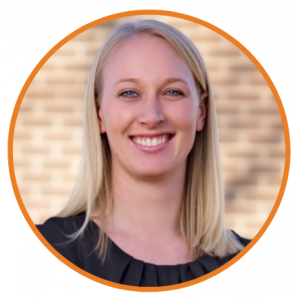
Brittney: There is a record amount of funding coming down right now with the Bipartisan Infrastructure Law, but it is for a limited time. Prioritize your projects and contact MSA to help you get them done and take advantage of the money out there.
Britta: Hang in there! Communicate with MSA what you are needing help to fund and let us brainstorm within MSA to see what we can do to help. If there isn’t something out there right now, we’ll keep our eyes open for when there is!
Jennifer: It doesn’t hurt to apply for grants. You will miss out on 100% of the grants you don’t apply for. We’re here to help and we’re happy to!
Kristina: Contact MSA and talk to us about what you need or would like to see in your community. Whether it is visioning or planning, designing or implementing, MSA has so much to offer!
Lisa: I would encourage communities to ask for help and guidance. It takes a community to assist a community!
Tara: Nothing about grant and loan programs is fast, but they are worth it. And free money isn’t ever “free”! There are always some hoops to jump through. Let us help you navigate the hoops! We are weird and enjoy it.
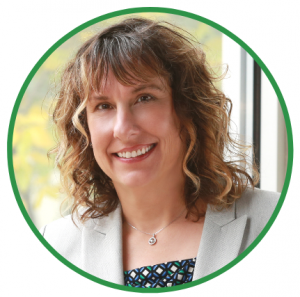
Diane: Have a must-have list. Have a wish list. Have a high-hopes list. Articulate them all in your capital improvement plan, your comprehensive plan, your comprehensive outdoor recreation plan. Make sure all these plans are up to date and adopted by the governing body. When new funding programs are released or an influx of funding is pumped into existing programs, you’ll be at the ready.
![]()
![]()
Here for you.
The MSA funding team has assisted many communities apply for and receive funding to support their grandest visions, long-awaited plans and critical infrastructure upgrades. From public works and roadways to trails, land development, parks and recreation, housing or blight elimination, we are here to help make your community shine. And, to help minimize stress along the way.
Twelve funding experts with a diverse set of expertise — the MSA funding team is here for you.
Contact us today to get the conversation started.